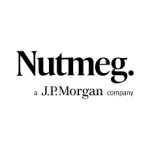Investment Focus: Investec FTSE 100 Enhanced Income Plan
Our Investment Focus articles are designed to give new and existing customers a more detailed overview of a selection of income and growth investment plans, covering both the risks and the rewards. So whilst the income yields from the FTSE 100 remain under pressure, what better way to start 2017 than to review our best selling income plan, offering a high level of fixed monthly income. Some of you may be familiar with the plan, some of you may even have invested or reinvested into the plan, which remains popular year after year with a wide range of income seekers.
In a nutshell
Investec’s FTSE 100 Enhanced Income Plan is a relatively straightforward plan to understand. It pays a fixed rate of income, every month, for a fixed term. Therefore, your income is paid regardless of what happens to the stock market. The ‘FTSE 100’ in the plan title refers to what happens to your original investment, with your initial capital returned at the end of the term unless the FTSE 100 Index falls by more than 50% during the plan term. If it does, and also finishes below its starting value, you will lose 1% for each 1% fall in the Index. This plan therefore puts your capital at risk.
What is driving customers?
This is our best-selling income investment plan. Whether you are working and need to supplement your earnings, or retired and looking at ways to supplement your pension or savings income, the need for income is one of the most common demands put on our capital. Traditional investment funds only tend to offer a variable income, whilst also putting your capital at risk on a daily basis. Rather uniquely in the income investment space, this plan combines a fixed income with some degree of capital protection.
Where have all the fixed rates gone?
In contrast to the high levels of the FTSE 100 Index we have experienced recently, fixed savings rates are still at record lows. With no realistic prospect of any sudden sharp increases, let alone a return to the 4%+ rates that were around five years ago, whatever your situation the ability to meet income needs remains a very real challenge. But against this backdrop of intense pressure on savers, and whilst stock market conditions perhaps raise more questions than they do answers, this investment from Investec has remained a top seller with income seekers. So let’s take a look at its main features…
Fixed income
With savings rates at such low levels, the prospect of a high fixed income is likely to be attractive to a wide range of income seekers. Unusual for an investment, which normally pay a variable income dependent on the performance of the underlying asset, this plan pays a fixed income regardless of the performance of the stock market. The current issue of the plan is paying 5.04% p.a. fixed, which means that the investor has the certainty of knowing at the outset exactly how much they will receive each and every year.
Monthly payments
Another popular feature is the monthly payment frequency since this is the most useful in terms of budgeting, especially when many UK equity income funds only offer twice yearly or quarterly payments. Therefore, not only does the investment provide a high level of fixed income, but it also pays this on a monthly basis, which could be an important feature when looking to supplement existing income. At 5.04% p.a. on offer from the latest issue, this equates to 0.42% paid each and every month for the entire term of the plan.
Fixed term
The Enhanced Income Plan has a fixed term of six years and although you do have the option to withdraw your money early (and in this respect is not dissimilar to an investment fund), the plan is designed to be held for the full term and early withdrawal could result in you getting back less (or more) than you invested.
Many fixed rate savers will be used to a fixed term whilst this feature should also appeal to investors who wish to plan around this accordingly. Combined with a fixed and regular level of income, this also means that full plan terms are known at the outset and so investors can consider more clearly the risk versus reward prior to investing their capital.
Some capital protection from a falling market
The Enhanced Income Plan contains what is known as conditional capital protection, which means that the return of your initial investment is conditional on the FTSE 100 Index not falling by more than 50% below its value at the start of the plan. If the FTSE stays above this 50% barrier throughout the plan term, you will receive a full return of your original investment when the plan ends. However, if it falls below this level, and is also below its starting value at the end of the six year term, your initial investment will be reduced by 1% for every 1% fall. Therefore this plan puts your capital at risk and you could lose some or all of your initial investment.
The use of averaging
When calculating the final level of the FTSE for the purposes of comparing it with its value at the start of the plan, the plan takes the average of the closing levels of the Index on each business day during the last 6 months of the plan term. The use of averaging can reduce the adverse effects of a falling market or sudden market falls whilst it can also reduce the benefits of an increasing market or sudden increases in the market during the last six months of the plan.
Credit ratings and agencies
This plan is a structured investment and so unlike investing in a fund where you would buy units at the prevailing price on the date of purchase, your initial capital is used to purchase securities issued by Investec Bank plc. These securities are structured in a way so that they aim to provide the fixed income and the return of capital as described above, and means that Investec Bank plc’s ability to meet their financial obligations becomes an important investment consideration. If the bank fails or becomes insolvent, this could affect both the payment of any future income, as well as the return of your original investment and you would not be covered by the Financial Services Compensation Scheme for default alone.
Fitch is one of the main global credit rating agencies and has awarded Investec Bank plc a credit rating of BBB with a stable outlook (awarded 3rd October 2016). The ‘BBB’ rating denotes a good credit quality and indicates that expectations of default risk are currently low and that Investec Bank plc’s capacity for payment of its financial commitments is considered to be adequate but adverse business or economic conditions are more likely to impair this capacity. The stable outlook indicates that the rating is not expected to change in the short to medium term, i.e. in the next 6 months to 2 years.
Investec Bank plc profile
Investec is an international specialist bank and asset manager with its main operations in the UK and South Africa. Established in 1974, they currently employ around 9,000 people and as at 31st March 2016, look after £121.7 billion of customer assets. They provide a range of financial products and services and specialise in a number of areas, particularly within the banking sector. Their banking operation looks after £24.0 billion of customer deposits and they are also a market leading provider of investment plans and structured deposits in the UK.
Risk v reward
The principle of risk versus reward means that the search for potentially higher returns leads us to consider putting our capital at risk. A good benchmark for assessing your investment is to compare what you could get from a fixed rate deposit (capital protected) over a similar timeframe, and then consider whether you are comfortable with the risk to capital you are taking in order to receive the opportunity for a higher return.
Our leading five year fixed rate bond is currently offering 2.01%, and so by accepting risk to your capital, you are increasing your fixed return by 3.03% a year (since the fixed income from this investment is 5.04% p.a.). With the savings market failing to meet the need for higher income, the decision is whether you are comfortable with putting your capital at risk and the conditional capital protection offered, in order to achieve the higher return.
Fair Investment view
Commenting on the plan, head of savings and investments at Fair Investment Company Oliver Roylance-Smith said: “One of the main attractions with the Enhanced Income Plan is the ability for potential investors to consider its risk versus reward prior to investing. The plan pays a fixed income, each month, for a fixed term – so you know exactly what you will receive, when, and for how long – whilst you get your capital back at the end of the term unless the FTSE has fallen by more than 50%.“
He continued: “Compared to other income investments, this defined return for a defined level of risk could be attractive whilst the monthly income and fixed income features are often high up on the list of priorities for income seekers.”
The plan is open for new ISA investments up to the £15,240 allowance, Cash ISA and Stocks & Shares ISA transfers, as well as non-ISA investments. The minimum investment is £3,000.
Click for more information about the Investec FTSE 100 Enhanced Income Plan »
No news, feature article or comment should be seen as a personal recommendation to invest. Prior to making any decision to invest, you should ensure that you are familiar with the risks associated with a particular investment. If you are at all unsure of the suitability of a particular investment, both in respect of its objectives and its risk profile, you should seek independent financial advice.
This investment does not include the same security of capital that is afforded to a deposit account. Your capital is at risk.
Tax treatment of ISAs depends on your individual circumstances and is based on current law which may be subject to change in the future. Always remember to check whether any charges apply before transferring an ISA.
This is a structured investment plan that is not capital protected and is not covered by the Financial Services Compensation Scheme (FSCS) for default alone. There is a risk of losing some or all of your initial investment. There is a risk that the company backing the plan or any company associated with the plan may be unable to repay your initial investment and any returns stated. In addition, you may not get back the full amount of your initial investment if the plan is not held for the full term. The past performance of the FTSE 100 Index is not a guide to its future performance.
Tags





